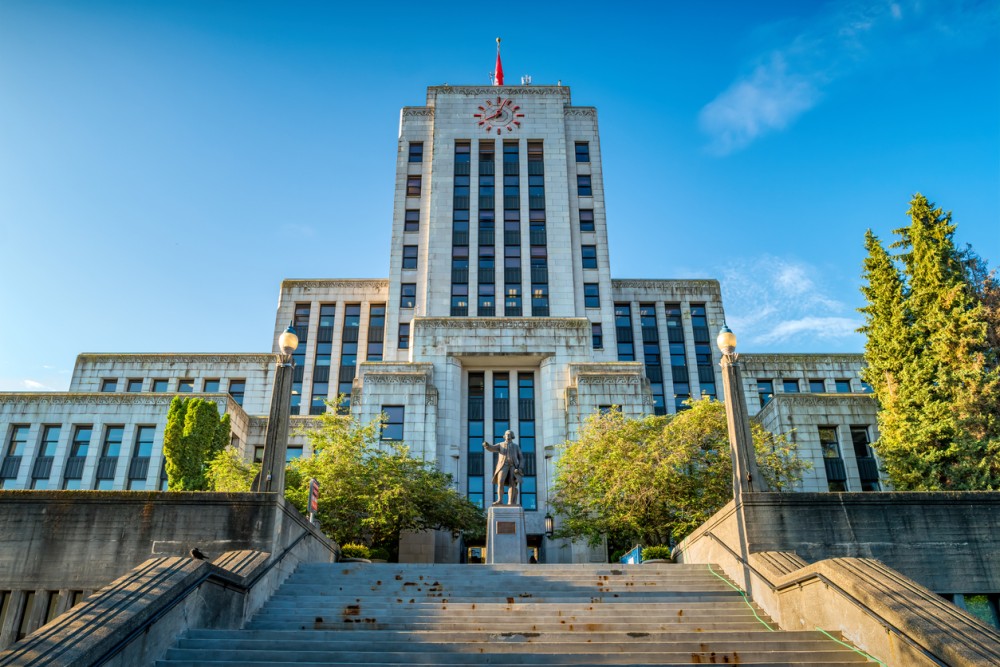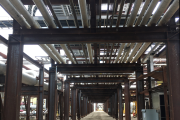The recent decision by Vancouver City Council to amend regulations to allow natural gas for new home construction will have a long-term negative impact on meeting our climate targets and housing affordability.
Vancouver has been a leader in its efforts to decarbonize buildings, which contribute to 60% of the city’s total greenhouse gas (GHG) emissions. This amendment undermines the most effective and straightforward method to reduce these emissions. By reverting to natural gas, the city risks locking itself into a high-carbon infrastructure at a time when urgent climate action is needed.
The housing crisis in Vancouver is driven by multiple complex factors, and delaying the construction of reliable, climate-safe buildings that are affordable to heat and cool is not a viable solution. Local governments should collaborate with the provincial government to ensure new homes meet the highest standards for efficiency and electrification. This approach not only reduces emissions but also lowers energy costs for residents.
One of the justifications for the amendment is the perceived cost savings for residents. Industry experience shows that high-performance, all-electric buildings can be constructed affordably. According to case studies from the Zero Emissions Innovation Centre (ZEIC), zero-emissions buildings can achieve cost parity with gas-fired buildings. Forgoing gas infrastructure simplifies design and construction, which can reduce costs.
Homes disconnected from the natural gas network are more affordable year-over-year due to lower fixed infrastructure costs. The long-term financial burden of maintaining natural gas infrastructure, which will eventually become a stranded asset, outweighs any short-term cost benefits.
The decision to allow natural gas in new construction could severely hinder Vancouver's climate goals. The city's emissions from buildings are significant, and the easiest way to reduce them is to ensure all new construction are all-electric. The amendment sends the wrong signal to the industry and could lead to increased retrofit costs for homeowners and unnecessary infrastructure expenses for municipalities.
High-performance electric heating systems have proven to be both affordable and efficient. BC Hydro is developing rate structures to support residential electrification, making heating and cooling even more cost-effective. As B2E (Building to Electrification Coalition) reports, a study from B.C. Ministry of Housing’s Building and Safety Standards Branch has demonstrated that “all-electric homes can be built for virtually every budget and in any community in B.C.”
Rod Nadeau, managing partner at Innovation Building Group Inc., has first-hand experience of building all-electric homes. He wrote to the Pembina Institute in response to the council decision: “We have built over 1,000 homes in the last 40 years and only used gas in less than 5% of them. The alternatives are well-established, proven technology. As a building owner we converted a gas building to heat pump central hot water and now save over $10,000 a year on costs. It was one of the best investments we have made.”
City councillors’ amendment yesterday assumes that renewable natural gas (RNG) and hydrogen gas blends will be sufficient to decarbonize Vancouver's building stock. Fortis BC’s own research shows there isn’t enough RNG available, and hydrogen cannot be successfully blended at scale. This risky assumption could leave homeowners and local governments stranded with costly infrastructure expenditures and delay the transition to a low-carbon future.
Council's decision is big step back for a city renowned for its leadership. To stick natural gas back into new home construction would jeopardize Vancouver’s climate goals and do nothing to reduce the costs of operating buildings over the long term. By focusing on electrification and high-performance buildings, Vancouver is already showing the rest of Canada it can address its housing crisis without compromising its commitment to reducing GHG emissions. Why stop now when there is so much work needed to decarbonize buildings already built?
Vancouver City staff have been tasked to return to Council by November 1 with a proposal on how to integrate the amendment into the 2026 – 2030 climate action plans. We hope council members will keep in mind the need for climate resilience and the importance of the long-term affordability of operating buildings as they prepare for another vote on this issue.








